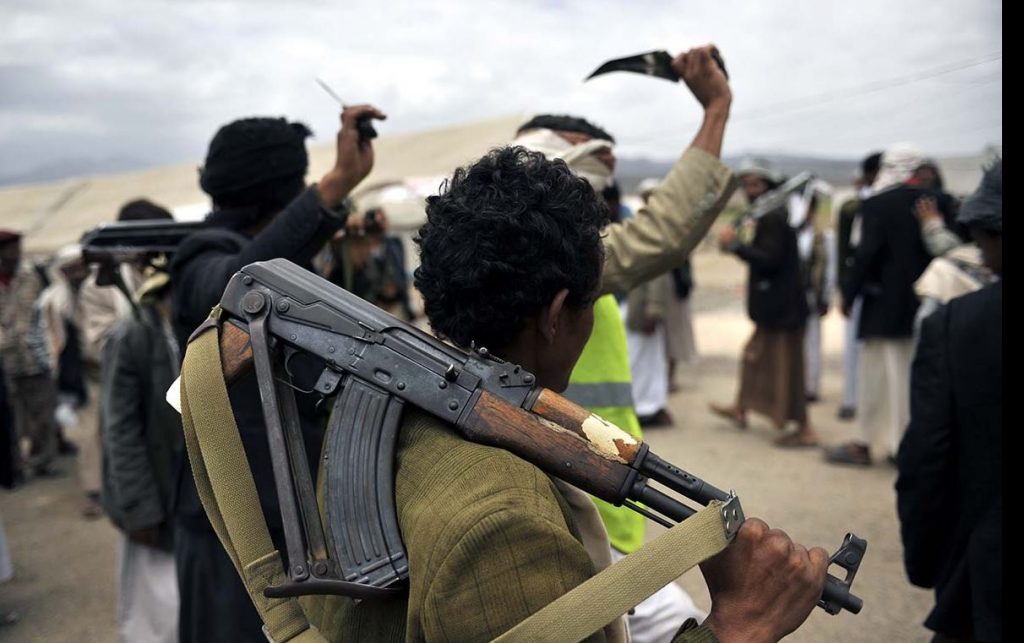
The latest developments in South Yemen have proved the vulnerability of political settlement in the war-torn country. Political solution in the country has been the ultimate goal for the Arab coalition from day one. The coalition’s two main partners, UAE and Saudi Arabia, remain committed to that goal, like reported by gulfnews.com.
Earlier this month the Southern Transitional Council’s (STC) move to control the port city of Aden — interim seat of the internationally-recognised government — was in response to Muslim Brotherhood-affiliated Islah party’s involvement in a plot against southerners. The Iranian-backed Al Houthis bombed military positions of the southern resistance fighters, who blamed Islah for conspiring with Al Houthis to carry out the attack. During the funerals of those killed, the Presidential Guard in Aden reportedly opened fire on southern mourners, who responded and the exchange escalated. The STC and other southern groups seized government building and kicked officials out of the south.
Muslim Brotherhood, through their members in President Abd Rabbo Mansour Hadi-affiliated media, started a disinformation campaign, trying to pass the events as a failure of the coalition. For a while it looked as if the vicious circle of Islah’s opportunism would bear fruit, but the parties concerned are aware of their sabotaging strategy: discrediting others to dominate. Islah wanted to go back to old days where it was (along with militant groups like Al Qaida etc) a main player in Yemen when Al Houthis were bit players.
Since the beginning of the Al Houthi coup in late 2014 and early 2015, Islah asked its members to stay ‘neutral’ and they seldom joined the resistance against the rebels. In some areas they even helped insurgents, playing the game of ‘wait and see’ to decide who is wining. When the Saudis gathered the coalition, Muslim Brotherhood in Yemen wanted to be the main beneficiary. Since the Saudi leadership is rightfully wary of Muslim Brotherhood, Islah picked on the weak legitimate government of Hadi.
To dominate, Muslim Brotherhood needed to get rid of any other faction in Yemen that was proving helpful to coalition in the fight to end Al Houthi rebellion.
Meanwhile, they spread rumours and exploited humanitarian aid distribution to show false patriotism.
Islah’s plots
Southern fighters played a major role in military achievements against Al Houthis, despite Islah plots and sabotage, and they naturally needed to be part of any political settlement. Whether separation from north, confederation in one state or any other form, they were at the forefront of exposing Muslim Brotherhood .
There might have been some who argued that Sunni Muslim Brotherhood were a better choice to Al Houthis, but that’s exactly what nobody keen on the future of Yemen should argue with: Sectarianism. Moreover, Muslim Brotherhood once stood with Shiite Iran against Sunni Saddam regime in Iraq and collaborated with Iranian proxy groups in other parts of the region.
Actually, the STC and other Yemeni groups in the south were active in helping coalition forces — especially Emirati endeavours — on the ground to drive out Al Houthi militia, Al Qaida, Daesh and others in the south. They were active not only in Aden but in Abyan as well as other areas where they’re entrusted by coalition to keep security.
Sabotaging peace
Islah are furious, as those groups can easily expose their sabotaging efforts, and make their infiltration of government posts useless. That’s why they pushed it to the point of conflict so as to ‘cry wolf’ and claim “Southerners are weakening legitimacy and playing in the hands of Al Houthis”. That’s typical Muslim Brotherhood strategy, mirrored everywhere they are active — from Egypt to Morocco.
Whether south is separated from the north, as some in the region see plausible, or some sort of autonomy is given, in any future political settlement in Yemen has to be fair. Of course, Muslim Brotherhood/Islah will do all they can to sabotage this as it comes at the expense of the benefits they seek to gain from the efforts they didn’t participate in.
Fortunately, their ploy to create cracks in Saud-Emirati relationship is not working, as both parties can easily identify the saboteurs. Yet, the road to peace in Yemen is going to be long and Muslim Brotherhood will not relent until they make unsolicited gains. The only guarantee to avoid their sabotaging effort is the strong relationship between the two main parties of the coalition: Saudi Arabia and UAE. Needless to say that if Hadi’s government keeps relying on Muslim Brotherhood, it can’t claim to be legitimate in Yemen.


